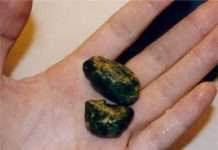The ketogenic (keto) diet centers on dramatically reducing carbohydrate intake to shift the body’s primary fuel source from glucose to fat. A key challenge for those following a keto lifestyle is finding suitable sweeteners that maintain the diet’s low-carb nature while satisfying cravings for sweetness. This guide explores six popular keto-friendly sweeteners and provides insight into their potential benefits, drawbacks, and best uses. Understanding these options is crucial for long-term adherence and success on a keto diet.
Understanding the Basics: Why Traditional Sweeteners Don’t Fit
Traditional sweeteners like sugar (sucrose), honey, and agave nectar are high in carbohydrates, which can quickly eliminate you from ketosis— a metabolic state where your body primarily burns fat for fuel. The goal of keto is to keep carbohydrate intake low (typically under 50 grams per day), so choosing sweeteners carefully is essential. The sweeteners discussed here offer significantly fewer carbohydrates and minimal impact on blood sugar levels.
Top 6 Keto-Friendly Sweeteners
1. Stevia: Nature’s Zero-Calorie Option
Derived from the Stevia rebaudiana plant, stevia is a naturally occurring, zero-calorie sweetener widely available under brand names like Truvia and PureVia. The Food and Drug Administration (FDA) recognizes stevia as safe (GRAS). While generally well-tolerated, some individuals may experience mild side effects like bloating, dizziness, nausea, or numbness. It’s always a good idea to discuss any concerns with your healthcare provider, especially if you take medications that may be affected. Stevia is approximately 200-400 times sweeter than table sugar, making a little go a long way. It’s excellent for coffee and tea but might not perform optimally in large quantities when baking due to its limited ability to act as a binding agent.
2. Monk Fruit: Sweetness from the Luo Han Guo
Monk fruit, also known as Luo Han Guo, originates from a plant native to China and is available under brands like Monk Fruit in the Raw and PureLo. The FDA has determined it to be safe. This sweetener boasts a compelling profile: it is 100-250 times sweeter than table sugar, contains no calories, and provides 0.5 grams of carbohydrates per teaspoon. Monk fruit holds up well in beverages, salad dressings, and even baked goods, although it may subtly alter texture.
3. Erythritol: A Naturally Occurring Sugar Alcohol
Erythritol is a sugar alcohol found naturally in fruits and fermented foods. The FDA considers it safe. It contains zero calories and has approximately 60-80% of the sweetness of table sugar. A significant advantage of erythritol is that it doesn’t raise blood sugar or contribute to tooth decay. While it can aid in reducing sugar intake, more research is needed to fully understand its long-term effects. The body processes erythritol more slowly than table sugar, potentially leading to fewer digestive issues. It’s suitable for use in beverages and various recipes, but be aware that it can produce a cooling sensation when consumed in large amounts.
4. Xylitol: A Sweetener with Dental Benefits
Xylitol is another sugar alcohol that’s comparable in sweetness to table sugar, but with fewer calories and carbohydrates. The FDA has approved it for safe consumption. Notably, xylitol doesn’t contribute to tooth decay and might even offer protective benefits. However, excessive consumption can lead to gastrointestinal discomfort like cramps and diarrhea. It works well in coffee, smoothies, and tea, but may need some adjustments in baking recipes due to its tendency to absorb moisture.
5. Maltitol: Consider the Potential Side Effects
Maltitol is a sugar alcohol approximately 75-90% as sweet as table sugar, with fewer calories. It’s frequently found in “sugar-free” products like gum, mouthwash, and toothpaste. While it can potentially aid weight loss and may improve dental health (though data is mixed), it can cause digestive issues like cramps, gas, and diarrhea when consumed in excess. Maltitol’s lower melting point makes it an interesting option for ice cream, potentially offering a unique texture.
6. Yacon Syrup: Fiber-Rich with Caveats
Yacon syrup is extracted from the roots of the yacon plant, commonly grown in South America. It contains nearly half the calories of table sugar and is a source of fructooligosaccharides (FOS), a type of soluble fiber. Your body doesn’t digest FOS, and this soluble fiber has the potential to lower cholesterol and provide heart-health benefits. However, FOS can cause bloating, cramps, and diarrhea in some people. Yacon syrup works well in coffee, tea, and salad dressing, but it’s best avoided in cooked or baked goods, as FOS breaks down at high temperatures.
Beyond the Top 6: Other Keto-Friendly Sweeteners
Several other low-carb sweeteners can be incorporated into a ketogenic diet, including:
- Hydrogenated starch hydrolysates (HSH)
- Isomalt
- Lactitol
- Mannitol
- Sorbitol
A Crucial Reminder: Always Check the Label
It’s tempting to assume that products labeled as “low-carb” or “keto-friendly” are inherently suitable for the ketogenic diet. However, simply containing a low-carb sweetener doesn’t guarantee keto compliance. These products may still contain other carbohydrates, so diligently checking the Nutrition Facts label is crucial to ensure the product aligns with your daily macro goals.
Sweeteners to Avoid on Keto
To maintain ketosis and achieve your weight loss goals, it’s important to avoid sweeteners that are high in carbohydrates. These include both natural and artificial sweeteners:
- Natural Sweeteners: Agave nectar, fructose (found in fruits), honey, maltose, maple sugar, molasses, sugar beet, sugarcane
- Artificial Sweeteners: Many artificial sweeteners are high in carbs and should be avoided.
Navigating the world of sweeteners on a ketogenic diet can feel complex, but with a clear understanding of the options and a mindful approach to labeling, you can successfully manage your carbohydrate intake and enjoy delicious, satisfying meals.
